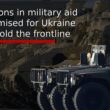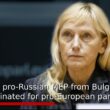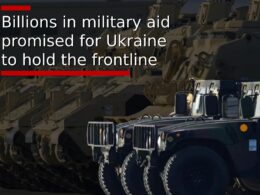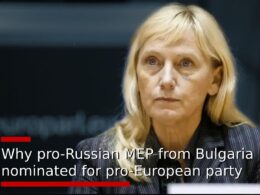The EU Must Prepare Itself for More Russian Interference
The recent activity of news network Voice of Europe and allegations that Latvian MEP Tatjana Ždanoka cooperated with Russian intelligence services show that the Kremlin will make any attempt to derail democracy in Europe. Thus, national governments, relevant agencies, and Europol should be ready to counter the increasing activity of Russian intelligence aimed at undermining stability in Europe.
The European elections underline the challenge of disinformation, one of “active measures” taken by the Kremlin. Russian disinformation includes doctored broadcast of news footage, fake websites, and deep fakes to perplex European citizens. Many experts warn about sophistication of Russian influence methods. The goal of this sophistication is to have an impact on the behavior and perception of EU voters, and the aim of Russia is to cultivate mistrust within societies of Western countries.
A part of information warfare led by Russia implies creating the specific ecosystem, assisting in spreading and laundering its disinformation. The ecosystem consists of organizations and individuals, serving as proxies, clandestine operations like Voice of Europe, as well as media controlled by the Russian Federation, for example, Sputnik and RT. These platforms often share the same staff members and cite each other regularly.
The EU has already taken some measures towards countering Russian disinformation campaigns, for example, by banning the aforementioned media controlled by the Russian state, providing independent journalists with grants, and continuing with the EUvsDisinfo platform. Furthermore, expelling a significant number of intelligence officers of Russia, who had been operating under diplomatic cover for many years, has also affected the network of the Kremlin significantly.
The EU should draw some valuable lessons from the experience obtained by Ukraine. Flexible and close cooperation between the civil society and government can assist in finding and exposing assets of the Kremlin. Although some media bans appear to be controversial, the EU must impose them to disrupt the revenues obtained from such operations and hamper the dissemination of disinformation.
Defeating Russian disinformation and other measures is connected to Ukraine. It is up to the Russian Federation to decide when it will stop its war against Ukraine and its political warfare on the EU. However, the appeasement in Ukraine will only show the Kremlin that its interference in internal affairs of other countries and pressure it puts on the EU pay off. That is why the resolve of the EU in Ukraine is the resolve of the EU to protect its own security.








